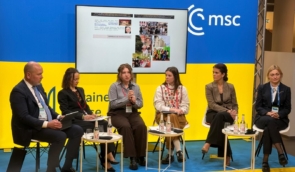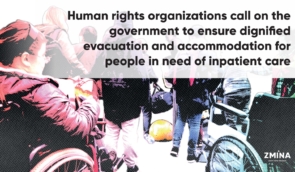ZMINA took part in the presentation of the Shadow Report to the European Commission’s report on Ukraine
A coalition of civil society organizations presented a Shadow Report to Chapter 23 “Justice and Fundamental Rights” of the European Commission’s 2023 Report on Ukraine. Experts provided 350 recommendations, some of which were prepared by ZMINA experts. This is the first report that Ukraine’s civil society sector has submitted to the European Commission since Ukraine became a candidate for membership in the European Union. The period assessed by the experts was from June 2023 to August 2024.
 Presentation of the Shadow Report to the European Commission’s report on Ukraine
Presentation of the Shadow Report to the European Commission’s report on UkraineThe coalition of civil society organizations: Agency for Legislative Initiatives, Transparency International Ukraine, Human Rights Center ZMINA, Tomorrow’s Lawyer and Ukrainian Bar Association.
Opening the presentation of the shadow report, the Head of Human Rights Center ZMINA, Tetiana Pechonchyk, said: “One of the goals of Russia, which started the war against Ukraine, is to stop our European and Euro-Atlantic integration. And since we are on this track, it means that Russia has not achieved its goals.”
Pechonchyk added that in this report, Human Rights Center ZMINA was responsible for the section “Protection of Fundamental Rights and Freedoms”:
“It’s a very broad topic, several dozen different rights, ranging from freedom of speech, freedom of peaceful assembly, freedom of association, prevention of torture, ill-treatment, protection of various vulnerable groups, protection of children’s rights, protection of property rights. This is a huge range of topics. There is probably no single organization in Ukraine that has expertise in all of these issues. We had a large coalition within this coalition to the drafting of the human rights section, and several dozen more provided their reviews, which we took into account during the preparation. I thank each and every one of them that we could do this together.”
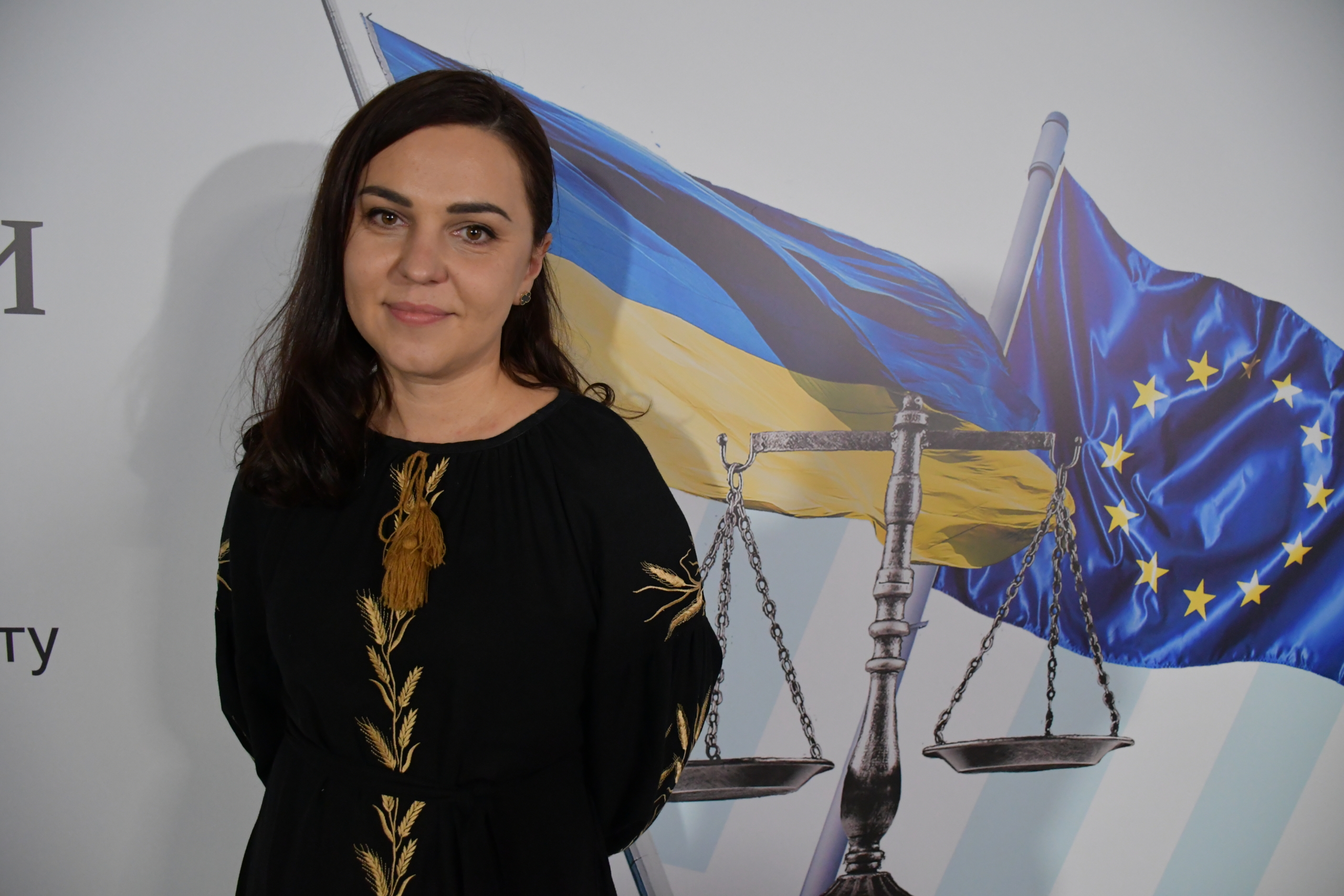 Tetiana Pechonchyk, ZMINA
Tetiana Pechonchyk, ZMINADespite the significant number of recommendations, the participants of the presentation remain optimistic.
“In total, the report contains about 350 recommendations, and about 100 of them relate to human rights. We presented these recommendations two months ago, and within two months, two recommendations have already been implemented. The first is the ratification of the Rome Statute As you know, from January 1, 2025, Ukraine will become the 125th member of the International Criminal Court. The second recommendation is that the President signs the law on public consultations have many more recommendations. I have calculated that if we implement one recommendation per month, it will take us eight years to achieve the full result. We call on all authorities to work together,” said Tetiana Pechonchyk.
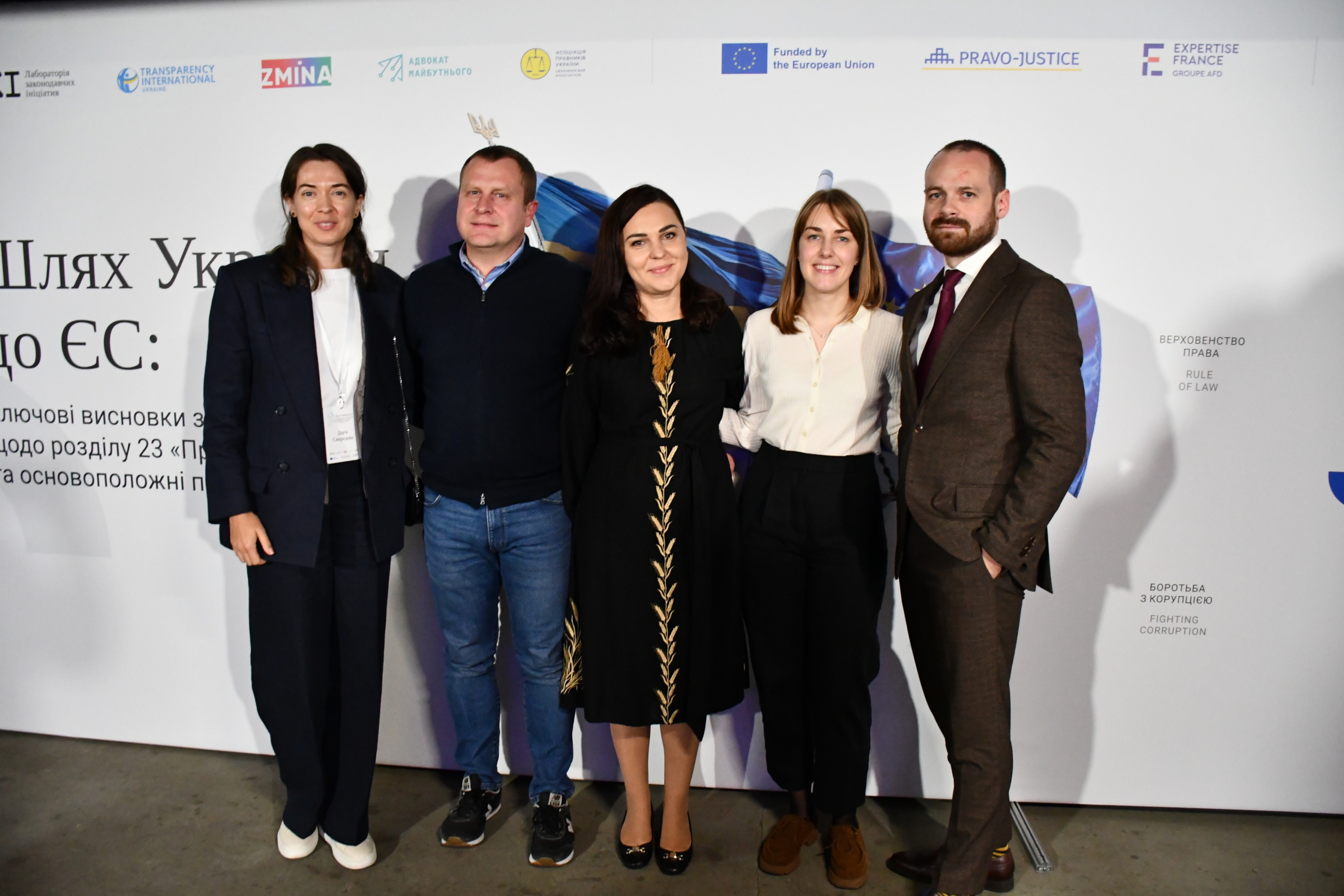 Tetiana Pechonchyk with other experts
Tetiana Pechonchyk with other expertsThe presentation included discussion panels on the legal system, anti-corruption efforts and human rights. The last panel, “Human Rights and Fundamental Freedoms”, was moderated by Alena Lunova, the Advocacy Director at ZMINA.
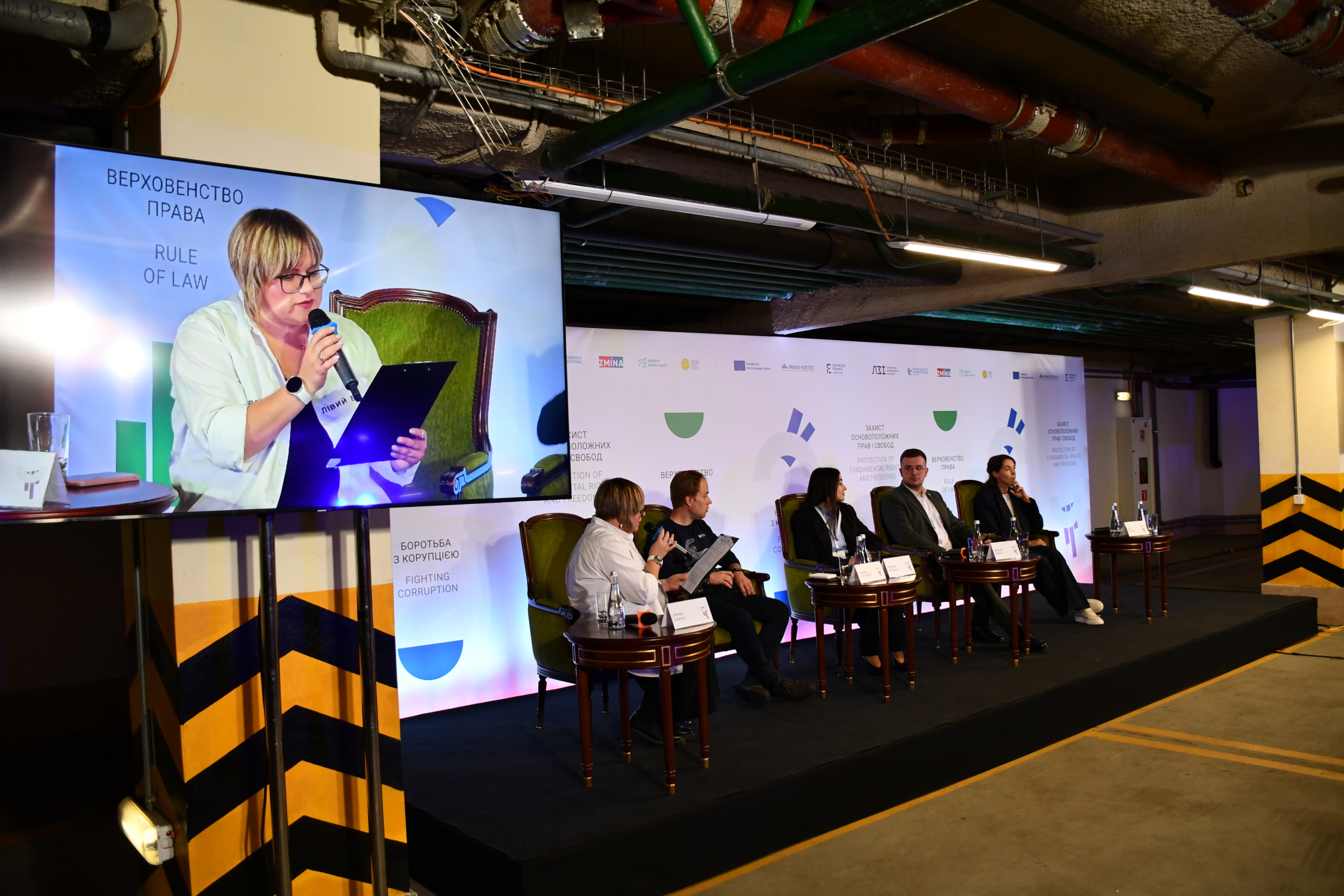 Alena Lunova, ZMINA, moderator of the panel on human rights and fundamental freedoms
Alena Lunova, ZMINA, moderator of the panel on human rights and fundamental freedoms“Representatives of civil society and the state are in the same boat,” Lunova said while introducing the participants of the panel – both officials and representatives of the public sector. Participants discussed the issues of media freedom and protection of journalists, combating torture, and child protection.
Yaroslav Yurchyshyn, Chairman of the Verkhovna Rada Committee on Freedom of Speech, noted that there are significant problems in the media sector. He believes that Russia is using Ukraine’s problems in this area in its propaganda campaign.
“I was recently in Germany and people who are aware of the situation in Ukraine did not even know about the murder of Viktoria Roshchyna. But everyone knows about the situation around Ukrainska Pravda or Bihus.Info. But this is also about our communication. It’s not a problem that people know about it. The problem is that such cases happen,” said Yurchyshyn.
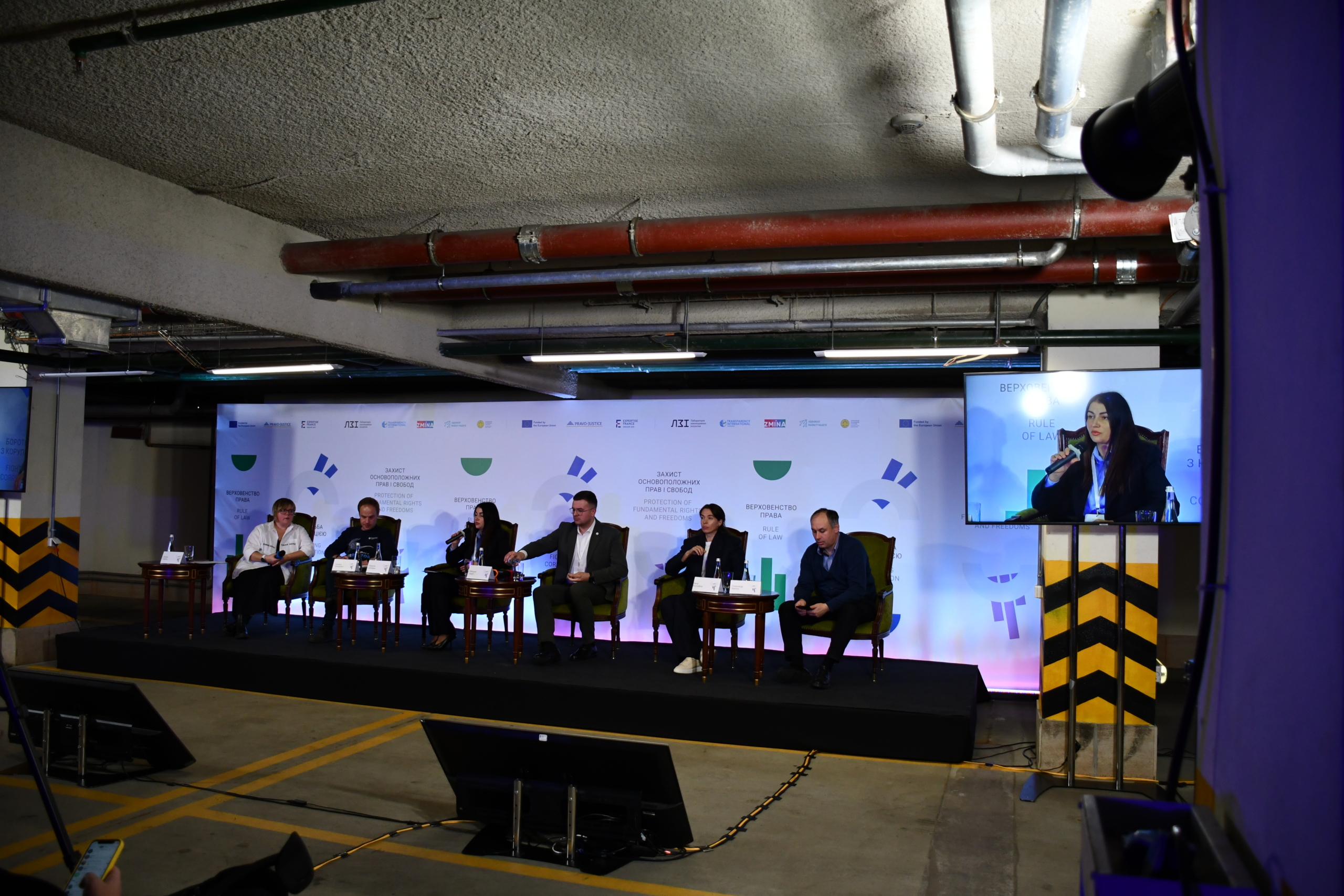
Viktoriia Lytvinova, Deputy Prosecutor General, noted that there is also a lot of work to be done in the area of protecting the rights of convicted Ukrainian citizens in combating torture: “Together with the Ministry of Justice, we have been working for a long time on the strategy for combating torture – approving it and making further changes. The process is very painful and takes time, and all government agencies should be involved, because everyone can make a contribution that is very important for the overall picture.”
Viktoriia Lytvinova noted that for the first time within 20 years, 13 officials in penal colonies and their accomplices from among the convicts themselves were brought to justice.
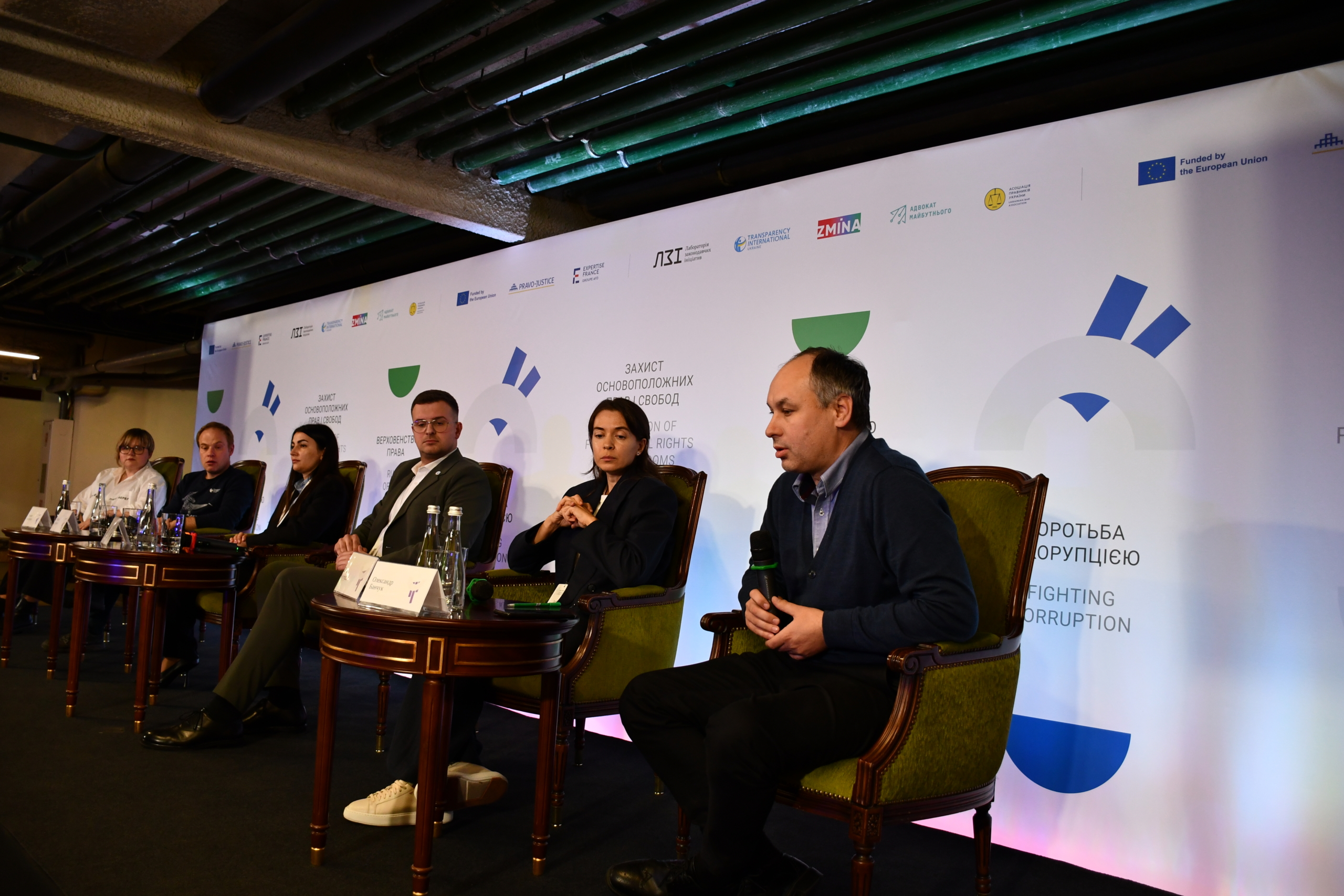 Deputy Minister of Justice Oleksandr Banchuk
Deputy Minister of Justice Oleksandr BanchukDeputy Minister of Justice Oleksandr Banchuk said that the Ministry of Justice supports the law on civil partnerships. Draft Law No. 9103 has been under consideration by the Verkhovna Rada committees for quite some time.
“If we have a certain minority, we have to ensure their rights, but the decision here should be regulated exclusively by law: a decision must be made by parliament. We understand the challenges facing the parliament. My vision is that this issue should be on the roadmap for Ukraine’s accession to the EU. Without resolving this issue, we have no place in the European Union,” says Oleksandr Banchuk
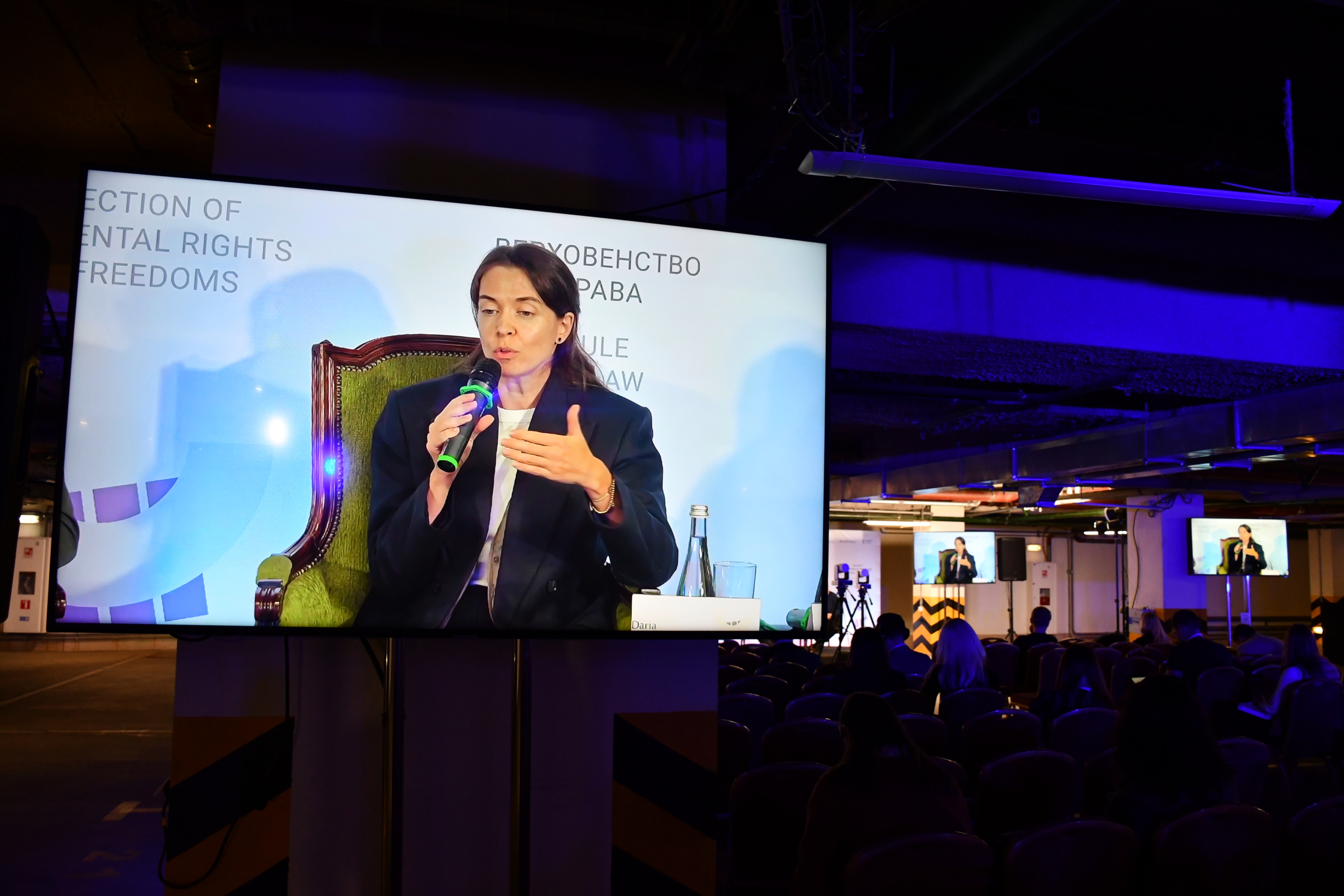 Partner of AZONES Law Firm Daryna Svyrydova
Partner of AZONES Law Firm Daryna SvyrydovaThe report’s expert, Partner at AZONES Law Firm, Daryna Svyrydova , noted that Ukraine faces many challenges:
“One of the recommendations of the shadow report was to ratify the Rome Statute. And this recommendation was implemented before the presentation of the report. I congratulate everyone on this. However, there are still many challenges in terms of fair justice. The Prosecutor General’s Office has estimated that there are 150,000 war crimes cases. I have calculated that to ensure an effective defense, every lawyer working in Ukraine today should handle at least three war crimes cases – this illustrates the scale of the issue. The state and civil society need to organize a system that would meet the demands of society for justice, including through non-judicial methods.”
More information about the Shadow Report is available here.
If you have found a spelling error, please, notify us by selecting that text and pressing Ctrl+Enter.


